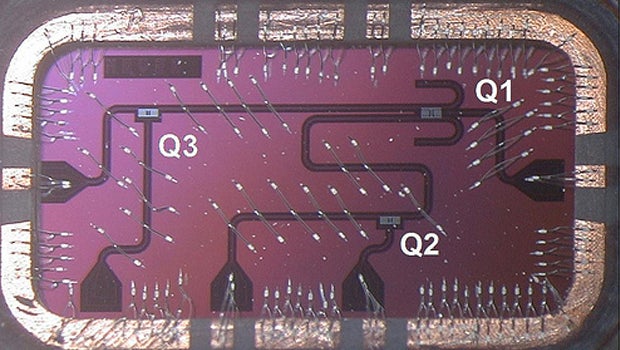IBM makes advances in quantum computing
(CBS News) IBM is taking a step close toward a super computer that work at speeds that are currently unheard of. The company will announce today at the Annual Physical Society meeting in Boston three new records for reducing errors while retaining integrity in computing at a quantum level.
The announcement will emphasize two main achievements: Reaching near minimum for the "implementation of a practical quantum computer" and the ability to scale up "hundreds or thousands of quantum bits."
First, what exactly is quantum computing?
The way typical computing works is by using a combination of "1" and "0" a.k.a. the binary numeral system. Behind most of processes in our computer is a series of binary combinations.
Computers as we know it can either process "1" or "0" in a bit, but not both. Quantum computing can hold "1" and "0" or both in a quantum bit (quibit) - the unit of measure used in quantum computing.
If researchers can make a breakthrough in quantum computing, the processing power of the future will be able to "work on millions of computations at once" - compare that to just a handful in today's computers.
"IBM has chosen to employ superconducting qubits, which use established microfabrication techniques developed for silicon technology," the company said in a press release, "providing the potential to one day scale up to and manufacture thousands or millions of qubits."
What does this mean for scientific neophytes?
At the most basic level, we'll eventually see super-fast computers.
"The quantum computing work we are doing shows it is no longer just a brute force physics experiment. It's time to start creating systems based on this science that will take computing to a new frontier," said Matthias Steffen, scientist and manager of the IBM research team.
The work IBM is doing can make processes like encoding and decoding, problem solving or searching databases move at lighting speed. IBM scientists are excited at the possibility of "solving previously unsolvable mathematical problems."
